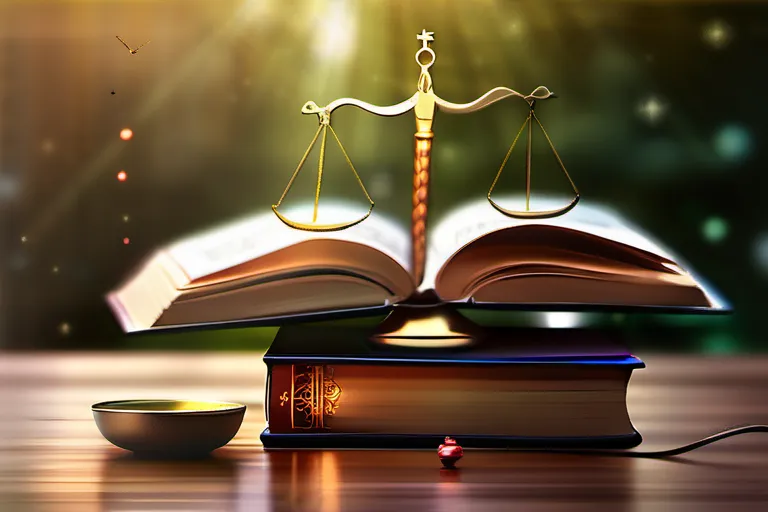Explore the complex interplay between faith and reason, delving into historical perspectives, philosophical debates, and modern-day implications.
In this article, we will embark on a journey to understand the intricate relationship between faith and reason. We will explore how these two seemingly disparate concepts have coexisted throughout history, and delve into the philosophical debates that have shaped our understanding of them.
The historical perspective: Faith and reason through the ages
How has the relationship between faith and reason evolved throughout history? From ancient Greece to the Middle Ages, these two pillars have often been seen as in conflict, but their dynamic interplay has also fostered some of humanity’s most profound philosophical advancements.
- In Ancient Greece: The philosopher Plato saw knowledge as a form of recollection, suggesting that true understanding lies beyond mere sensory experience. Here, faith in the existence of eternal forms was intertwined with reason to seek the truth. Could it be that seeking wisdom is not about choosing between these two paths but finding a way to harmonize them?
- The Middle Ages: St. Augustine’s work blended Christian doctrine with Platonic philosophy, emphasizing the role of faith in understanding divine truths. But as scholasticism developed, there was tension between the Church’s teachings and rational inquiry. How did this conflict shape the intellectual landscape of medieval Europe?
- The Enlightenment: Thinkers like Descartes championed reason over religious dogma, advocating for a scientific approach to knowledge. Yet, Voltaire and others saw faith as essential in providing moral guidance. In their quest for enlightenment, were they perhaps missing the broader picture that both faith and reason can coexist?
- Modern Times: Today, questions about the relationship between faith and reason continue. Religious fundamentalists often pit one against the other, while many scientists see faith as a hindrance to scientific progress. However, movements like process theology seek to reconcile these dichotomies. Are we moving closer to a unified understanding or further apart?
The journey from ancient wisdom to contemporary debates is a testament to how intertwined faith and reason have been. As we navigate the complexities of modern thought, it’s crucial to remember that perhaps the conflict isn’t between faith and reason but in our understanding of them.
Philosophical debates: The great thinkers on faith and reason
Philosophical debates: The great thinkers on faith and reason
Have you ever pondered over the relationship between faith and reason? It’s like trying to understand how two different rivers come together, blending their waters into a single flow. Philosophers throughout history have grappled with this question, each offering unique perspectives that continue to shape our understanding today.
- Plato: In his dialogues, Plato often presents the soul as immortal and the pursuit of knowledge as a journey towards truth. He believed that reason is essential in understanding the world beyond what we can see with our eyes. Could it be that seeking knowledge and faith are not mutually exclusive but rather complementary?
- Aristotle: On the other hand, Aristotle emphasized empirical observation and logic. His method of deduction and induction laid the groundwork for modern scientific inquiry. Does his focus on reason suggest a preference for rationality over faith?
- Thomas Aquinas: In the Middle Ages, Thomas Aquinas sought to reconcile faith and reason by using Aristotelian philosophy to support Christian doctrine. His work, ‘Summa Theologica,’ is a testament to this attempt. Can we find common ground between religious beliefs and rational thought?
- Rene Descartes: Descartes famously declared that ‘I think, therefore I am.’ He believed in the power of reason to find certainty. However, his method of doubt also led him to believe in God’s existence through reason alone. How can we navigate between empirical evidence and divine revelation?
- : In the 18th century, Kant argued that our understanding of the world is limited by the structure of our minds. He suggested that faith and reason are two separate but necessary domains. Can we truly understand the nature of reality through purely rational means or must we also consider spiritual experiences?
These great thinkers have painted a complex picture, suggesting that both faith and reason are vital in understanding the world around us. The debate continues today, with each new philosopher adding their unique insights to this ongoing conversation.
The role of faith in scientific discovery
Can we truly separate faith from reason, or are they two sides of the same coin? In the quest for understanding the world around us, many scientific discoveries owe their roots to individuals who were deeply rooted in their faith. One wonders how much of Galileo’s revolutionary work was inspired by his Catholic beliefs. Could it be that his deep-seated faith in a Creator fueled his relentless pursuit of knowledge about the heavens? Similarly, the work of Francis Bacon, often hailed as the father of the scientific method, was not merely driven by practicality but also by a desire to understand creation through reason and evidence. His faith, grounded in a belief in God’s orderly universe, provided a philosophical foundation for his empirical approach.
The relationship between science and religion has been a topic of intense debate. On one hand, some argue that scientific progress is hindered by religious dogma, seeing them as opposing forces. Yet, historical figures like Newton and Kepler, who made monumental contributions to physics and astronomy, also saw their faith as an integral part of their scientific endeavors. They believed in a God who created the universe with order and predictability—order that could be uncovered through reason.
The ongoing debate about the relationship between science and religion often hinges on how we interpret historical figures’ motivations. Were scientists like Galileo merely using their faith as a facade for pursuing truth, or was their faith itself a driving force in their work? This question is not just academic; it has profound implications for how we approach modern scientific discoveries. In today’s world, where technology and science are advancing at an unprecedented rate, the integration of faith can provide ethical guidelines and moral direction. Could this be seen as a bridge between the two seemingly disparate worlds?
The interplay between faith and reason in scientific discovery is complex and multifaceted. It challenges us to think deeply about how our beliefs influence our understanding of the world. As we continue to explore the universe, perhaps we should also reflect on whether our faith can guide us to deeper truths, not just about the cosmos but about ourselves and our place within it.
Reason in religious texts: Interpreting scripture
Is there a conflict between faith and reason? The question itself is like asking if light can ever be both a particle and a wave, challenging our understanding of reality. Throughout history, religious texts have been interpreted through various lenses, with one of those being the lens of reason. How do we reconcile the divine mysteries described in these texts with the rational mind that seeks to understand them?
Consider the Bible. For centuries, scholars and believers have wrestled with passages that seem contradictory or difficult to comprehend. Yet, many have found ways to interpret these scriptures using reason. For instance, the story of creation in Genesis has been approached through scientific lenses, leading some to propose a day-age interpretation where each ‘day’ could represent vast periods of time. This blend of faith and logic not only reconciles the biblical narrative with modern science but also enriches our understanding of both.
In Islam, the concept of Ijtihad (independent reasoning) allows for the reinterpretation of religious texts in light of new contexts. Scholars have used this method to address contemporary issues like environmental ethics and women’s rights, finding ways to apply ancient wisdom to modern challenges through reasoned debate and discussion.
The challenge lies not only in interpretation but also in navigating the potential conflicts between strict literalism and more flexible approaches. For example, when faced with a seemingly harsh commandment in the Torah, some interpret it within the context of its historical and cultural setting, using reason to understand the spirit behind the text rather than just the letter.
These examples show that while faith and reason can sometimes seem at odds, they are also deeply intertwined. By embracing both, we enrich our spiritual and intellectual lives, creating a tapestry of understanding that is both rich and nuanced. The key lies in finding balance and harmony between these two powerful forces, allowing us to navigate the complex world with wisdom and compassion.
Modern-day implications: The impact of faith and reason in society
Imagine walking through a dense forest, where every path you take reveals new layers of complexity and beauty. In our modern society, this forest can be seen as the intertwining paths of faith and reason, each offering its own light to guide us. How do these two entities coexist in today’s world? Do they clash or complement one another?
Consider the realm of education. Faith and reason are like two rivers merging into a single stream. In some schools, religious teachings and scientific inquiry exist side by side, enriching students’ understanding of both the spiritual and the material worlds. However, in others, these streams may flow in parallel courses, creating barriers that can lead to misunderstandings or even conflicts.
Now turn your attention to politics. Here, faith and reason often collide, especially when policy decisions have implications for religious groups. Should laws be based on reason, ensuring equal rights and justice for all? Or should they also consider the values derived from faith, which may influence behavior in ways that extend beyond legal frameworks?
In the cultural landscape, faith and reason paint different but equally vibrant portraits. Art, music, literature—these expressions often draw upon both belief systems and rational thought to create a tapestry of human experience. Yet, at times, there can be tension when one perspective seeks to dominate the other in defining what is considered ‘true’ or ‘beautiful.’
The impact of faith and reason extends far beyond these examples. They shape our views on ethics, morality, and even personal identity. In this complex interplay, it becomes crucial to find a way to navigate these dual currents without letting them pull us apart.
Navigating the debate: Finding a balance between faith and reason
Navigating the debate: Finding a balance between faith and reason
Finding harmony between belief and logic can be as intricate as solving a complex puzzle. How do we ensure that our personal values align seamlessly with rational thinking in today’s diverse world? Is it possible to integrate faith and reason without compromising either? The answer lies not just in understanding the historical interplay of these two forces, but also in applying practical wisdom in our daily lives.
Consider how many great thinkers throughout history have navigated this delicate balance. Take Saint Anselm, who argued that faith could lead to rational understanding. Or consider René Descartes, whose famous statement ‘I think, therefore I am’ bridged the gap between spiritual and intellectual realms. These examples illustrate that it’s not a zero-sum game; both can coexist harmoniously if approached with an open mind.
Practically speaking, how does one achieve this balance? Start by recognizing that faith isn’t just about accepting things on blind trust but often involves deeper understanding and personal experience. For instance, many religious traditions emphasize the importance of prayer and reflection, which can be seen as a form of introspective reasoning. Similarly, engaging in critical thinking doesn’t negate our spiritual beliefs; rather, it enhances them by providing a framework for deeper exploration.
Engage actively with both faith and reason. Challenge yourself to question and explore, but also remain open to the insights that come from your faith. Create a dialogue within yourself where each aspect informs and enriches the other. This might mean discussing religious texts in light of current scientific discoveries or reflecting on ethical dilemmas through the lens of both moral teachings and logical analysis.
Ultimately, finding this balance isn’t about eliminating conflict but transforming it into a dynamic interaction that strengthens our understanding and compassion. As we navigate the complexities of faith and reason, let us strive for an integration that respects both the divine and the human in all their complexity.
Conclusion
 By the end of this article, you will have a deeper appreciation for the complexities of the relationship between faith and reason. You will understand how these two forces can complement each other, and how they can sometimes clash. Above all, you will be equipped with a nuanced perspective that will allow you to navigate the often contentious debates surrounding this topic.
By the end of this article, you will have a deeper appreciation for the complexities of the relationship between faith and reason. You will understand how these two forces can complement each other, and how they can sometimes clash. Above all, you will be equipped with a nuanced perspective that will allow you to navigate the often contentious debates surrounding this topic.











